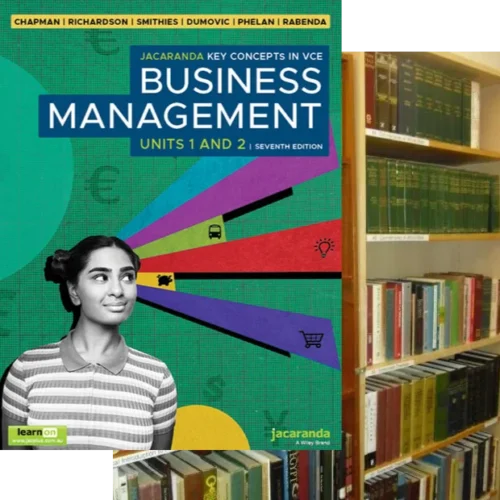Your Ultimate Resource Hub: Test Banks, Solution Manuals, HESI, ATI, NCLEX, and More!
Access a comprehensive collection of manuals and solutions.
Over 40,000 textbooks covered.
Achieve a Perfect 100 % Score and maintain your Grades.
Test Banks
Solution Manuals
Hesi Exam
Ati Exam
Nclex Exam
Test Bank IQ is your ultimate solution to all your test bank needs! We provide a set comprehensive collection of test banks that cover almost every single direction that you must be aware of to ace your upcoming exams.
Test Bank IQ aims to help individuals who are paying heavy amounts to teachers and tuition to master their courses. Our test banks will provide you with all the course lines, different types of questions, coursework, and quiz samples to help you solve all the professional assessments with ease.
Whether you’re a teacher or a problem-solving individual, our Testbanks have all the up-to-date content as we’ve a determined team that regularly reviews and gets all the test banks updated to align with the latest book editions and current academic standards to ensure that you don’t get missed out.
Trust these test banks, make them your study partner. Grind with all the resources given and you will perform more than your expectations.
40,000+
Test Banks &
Solutions Manuals
100+
Subjects to
Choose From
1000+
Ebook
10,000+
Satisfied
Students
What is a Test Bank?
A test bank is a collection of exam questions and answers that may be in the form of multiple-choice questions, short questions, true/false questions, and other basic formats.
These test banks help students to practice with relevant material for their final exams.
Test Bank IQ Categories

Amid Our Darkest Moments, We Must Focus to See the Light
-James Brown: 70 Years of My History
In our darkest moments, it's crucial to focus on the light ahead. By concentrating on hope and positivity, we can navigate through challenges and find our way to brighter days.
Everything That You Must Know About Test Banks
Many students who rely on self-studying strategies often face the problem of having feedback or having someone who’d help them stay on track by spotting their mistakes.
Test Bank IQ offers instant scoring and detailed explanations regarding your assignments. It helps students identify their strengths and work on their weaknesses.
Test Bank IQ provides customizable sections of different types of questions so students can work on their weak topics and chapters and improve accordingly.
Test banks provide you with questions that are crafted considering the type of questions that may appear in your exams. Practicing such questions daily help you better prepare for your exams.
For Whom Test Banks Will Be Beneficial
Test banks help students prepare for their exams. With specified questions and topics, it becomes an efficient tool to work on their weaknesses.
Test banks also serve as a resource for creating comprehensive exams. Teachers usually take the help of test banks to find important chapters that help them assess students.
Tutors and Educational Institutions also use Test banks to guide their students and improve their progress.
How to Use a Test Bank
Students can benefit from test banks by including regular practice sessions with our test bank quizzes that include a mix of difficulty levels and types of questions.
From multiple-choice questions to theoretical questions, the test banks will help them improve their knowledge and practice it while maintaining the perfect balance.
Practicing by cloning exam questions and concepts helps students self-assess themselves. It also helps them manage their time management skills and work on their capabilities to handle stress levels.
Teachers can use test banks to find questions that align with their particular course and exam type. It helps them find different concepts and questions that they could use to judge student's capabilities easily.
Why Choose TestBank IQ
TestBank IQ offers a vast database of test questions that cover a wide range of subjects and academic levels. Whether you're a student preparing for an upcoming exam or an educator looking for a tool that assists you in creating assignments, you'll find the resources you need to progress.
TestBank IQ offers multiple payment getaways to ensure your safe and secure checkouts. Our servers are protected with the latest encryption technology to ensure our customers that their money is safe with TestBank IQ.
Our platform is accessible to everyone around the clock to ensure that it doesn’t cause inconvenience for people from different time zones around the globe.
Test Bank IQ focuses on providing you with valuable information that drives you towards your goals. Our test banks are designed to improve and boost your hard work into your success.
Why You Should Buy Test Banks
To Know Your Textbook
Test banks provide you with study materials that are beyond your traditional textbook studying methods. Test banks expose you to important questions and topics coming from your textbooks.
It would help if you took the innovative solution
There’s no doubt that traditional study methods are effective but with the advancements in current fields. Teachers use advanced materials and ways to assess students. So, rather than spending excessive time on reading your textbooks and memorizing the reference materials, start consuming that content more effectively and practice your efforts with our testbanks.
You can get excellent grades
At Testbank IQ, we guarantee that our reference materials will not only help you master your course but it will also help you master the ways that you can adopt to secure maximum grades in your upcoming exams.
It Would Help If You Studied What Matters
Test Bank IQ aims to provide the most relevant data to students around the globe. Use your test banks to focus on the content that matters. We’ve designed our quizzes and practicing materials in such a way that if it had to appear in your exams it would come in the exact same way given in our test banks.
Benefits of Test Banks
Targeted Practice: Smart work always outperforms hard work. You can work 24/7 but if it’s not in the direction then it will never pay you off. Our test banks will guide you to the right path to achieve maximum marks in your exams.
Boost Your Confidence: Solving diverse questions that are replicated from your past papers helps you gain confidence. This confidence motivates you to achieve your goals.
Strategic Learning: Instead of wasting your time on your whole course. Our Test banks help you with a strategy that guarantees better performance.
Invest Your Time Better: Our well-designed test banks save your time by providing ready-made quizzes that help you self-evaluate yourself and work on your weaknesses.
Diverse Range of Subjects/Topics: Test Bank IQ provides you with a diverse range of subject coverage. Be it fields related to humanities, business, and programming. We aim to give you access to accurate and relevant questions no matter what’s your field of study.
Testbanks We Offer
At TestBank IQ, we provide a wide range of test banks for every course you might be taking. Below are the different test banks we offer.
Nursing & Health Professional
Test Bank IQ covers all the test banks related to nursing, medical, and health backgrounds. Below are the medical-related test banks you can easily access on our website.
Finance & Accounting
Test Bank IQ covers all the relevant materials for finance and accounting students. You can get your hands on the following test banks at Test Bank IQ with just a few clicks.
Life Sciences
We cover all the life sciences fields you might be interested in. From gynecology to ecology, we have it all covered. Below are the accessible test banks you can find on our website
Social Sciences
For all the students who aim to serve humanity. We offer you a wide range of test banks related to your social science subjects. Below are the accessible test banks you can find any time on our website.
Business
For all future entrepreneurs, we’re not just limited to finance and accounting. We offer a wide range of test banks that’d help business students in their field of expertise
Mathematics
For all the problem solvers. We’ve got your test banks to not just practice but also train your minds to solve every problem that comes your way. We offer different testbanks that’d be super helpful in your math courses journey.
Technology
In this modern age of digitalization, it’s super significant to learn and adapt to new fields related to tech and AI. We offer a wide range of students who are enrolled in tech subjects.
Others
The importance of general knowledge subjects is beyond passing your courses. They help you achieve various milestones in life. We offer different test banks focusing on general subjects.











































































































